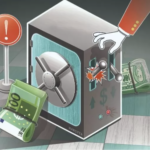New York Times
BUENOS AIRES — A decade ago, as Argentina slid toward financial collapse, banks barricaded themselves behind sheet metal to keep out protesters demanding access to their life savings.
“Thieves!” some yelled, banging hammers.
It was a low moment for Argentina as it abandoned an experiment to peg the peso to the dollar, froze bank accounts and defaulted on $100 billion in mostly foreign debt.
Today, the sheet metal is gone. But the debilitating effects of Argentina’s 2001 default and currency devaluation still linger. And now, as Greece edges toward a possible default, the Argentine lessons could be instructive.
For one thing, a decade later, Argentina has still not been able to re-enter the global credit market.
“A default is not free,” said Jaime Abut, a business consultant in Rosario, a city north of Buenos Aires. “You have to pay the consequences, and for a long time. Argentina is no longer considered a serious country.”
If anything, economists say, Greece’s prospects could prove worse. Argentina was, and is, a big exporter of agricultural products, and it runs a foreign trade surplus. The bulk of the Greek economy is services, particularly tourism, and Greece perennially runs a trade deficit.
Moreover, at the time of its default Argentina had a fiscal deficit of 3.2 percent of gross domestic product. Greece’s deficit was 10.5 percent of G.D.P. last year, according to the European Commission — well above the European Union’s limit of 3 percent.
And as a percentage of G.D.P., Greece’s debt of 150 percent is far worse than the 54 percent Argentina had when it defaulted.
But perhaps the biggest bind for Greece is that it shares a common currency with the other European nations that use the euro. And so, unless it takes the imponderable and unprecedented step of breaking from the euro zone, Greece does not have access to one big tool — devaluing its sovereign currency — that has helped Argentina weather its economic storm.
Despite the financing challenges, Argentina’s economy has grown by more than 8 percent a year since 2003, and many industries have benefited from the devaluation. Argentina has resumed exporting cars to Brazil. Tourism has flourished from an influx of Brazilians and other foreigners.
“The big problem for Greece is that they have a strong currency, much stronger in relation to their productivity,” said Eric Ritondale, a senior economist at Econviews, an economic consulting firm here.
During the 1990s, seeking to tame hyperinflation, Argentina had tied the value of its peso to the American dollar — a “convertibility” strategy that proved unsustainable because of rising global interest rates. The country privatized many industries, which led to high unemployment but also made Argentina’s economy more efficient.
(Greece, whose public sector accounted for about 40 percent of its economy before the debt crisis began last year,is now under heavy privatization pressure.)
By 1999, however, it was clear to most economists that Argentina was marching inexorably toward a default and devaluation. The number of people under the poverty line was growing — it peaked at more than 50 percent of the population in 2002 — and unemployment was soaring. The government coalition of President Fernando de la Rúa began to fall apart.
As with Greece now, social tensions rose. There were eight general strikes in Argentina in 2001, with looting and thousands of roadblocks. Huge lines formed outside many European embassies as waves of Argentines fled their country.
“People sold everything and moved to Spain, and took jobs doing anything, because they felt this country had no hope,” recalled Daniel Kerner, an analyst with the Eurasia Group, a political risk consultancy.
Mr. de la Rúa resigned on Dec. 21, 2001, fleeing the government house by helicopter as a riot raged below. Over the next 10 days, four presidents assumed power and then quickly resigned before a fifth, Eduardo Duhalde, declared the currency devaluation. A short time later, Congress formally approved the debt default that was already a de facto reality.
In 2003 Néstor Kirchner was elected to succeed the interim president, Mr. Duhalde. Mr. Kirchner embarked on a new economic model — one that his wife, Argentina’s current president, Cristina Fernández de Kirchner, continues to follow today. Its pillars are sustaining a weak currency to foster exports and discourage imports, and maintaining fiscal and trade surpluses that can be tapped for financing government and paying down debt.
Aiding this strategy has been the rising global prices of agricultural commodities. For Argentina, a major soybean producer, the commodity wave has been a godsend. Soybean prices have risen from $200 a ton in 2003 to about $500 a ton today.
Greece, with few agricultural exports, cannot expect a similar windfall. But economists say it can benefit from Argentina’s example on debt restructuring — mainly by seeking to avoid repeating it.
The Argentine government waited until 2005, when its economy was already in recovery, to conduct the first of two debt restructurings. Nongovernment foreign investors — the biggest included pension funds from Italy, Japan and the United States — took haircuts costing them two-thirds of their investments.
Notably, the one creditor that was paid back in full — in 2006 — was the International Monetary Fund, to which Argentina owed $9.8 billion dating to the 1990s.
A lesson for Greece is “whereas the commercial creditors are expected to take a haircut, the official creditors like the I.M.F. are not willing to,” said Robert S. Koenigsberger, chief investment officer with Gramercy, an emerging markets investment manager.
“That is how commercial creditors get subordinated and bear the brunt of these failed bailouts,” Mr. Koenigsberger said.
Since paying off the International Monetary Fund, Argentina has not borrowed from the fund. That has enabled the Kirchner governments to avoid the agency’s typical prescription of cutting state spending.
For Greece, which agreed last year to reduce government spending as a condition for a bailout package from the monetary fund and the European Union, the austerity measures are now a big source of social discord.
The Argentine government has maintained hefty subsidies on energy and some food to avoid public discontent — steps that would be anathema to the monetary fund. But again, it is high commodity prices that have helped let Mrs.
Kirchner maintain popularity at home through generous government outlays.
Argentina has been trying to lay the groundwork to begin borrowing again on global markets.
One big piece of unfinished business would be settling a debt of as much as $9 billion it still owes to the Paris Club of creditor nations — a group of 19 countries with some of the biggest economies. Argentina’s economy minister, Amado Boudou, has said his nation expects to reach a settlement by the end of this year.
Even if Argentina can go back into the global debt markets, though, analysts say it will probably have to pay interest rates as much as twice what its neighbor Brazil pays. Brazil’s 10-year bonds are at 4.5 percent.
And yet — buoyed by its ability to devalue its currency back during the crisis — Argentina’s economy is growing.
Miguel Faraoni, who heads Faraoni y Lo Menzo, a toymaker here, said he could not compete in the 1990s, when Argentine toy production fell to a flood of Chinese products. He considered bankruptcy around 2001 when he was employing only six workers, down from 30 in 1990.
Today he has 40 workers, and Argentina’s toy industry has a 40 percent share of domestic sales, up from 10 percent in 2001. “We are working 24 hours a day to meet domestic demand,” Mr. Faraoni said.
Brukman, a factory that make men’s suits here, survived after workers took control in 2002 when the family owners decided to call it quits. After skirmishes with the police, the workers eventually won the right to form a cooperative.
“We lived in terror of change in the late 1990s, that we would lose our jobs,” said Matilde Adorno, 68, a manager.
“Today we have a lot of work, so much that we can’t fill the orders.”
In the end, Argentina may have one more lesson to teach Greece: the danger of fatalism.
“A lot of people were saying that Argentina would never recover, that the peso would never regain value, that this country was damned,” said Mr. Kerner, the analyst. “And it didn’t happen.”





